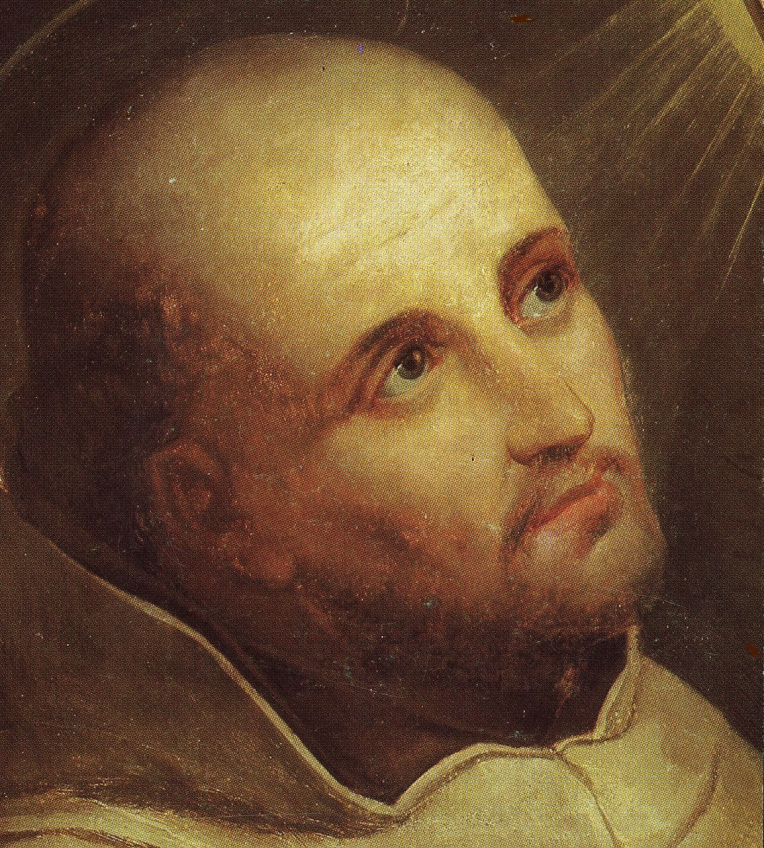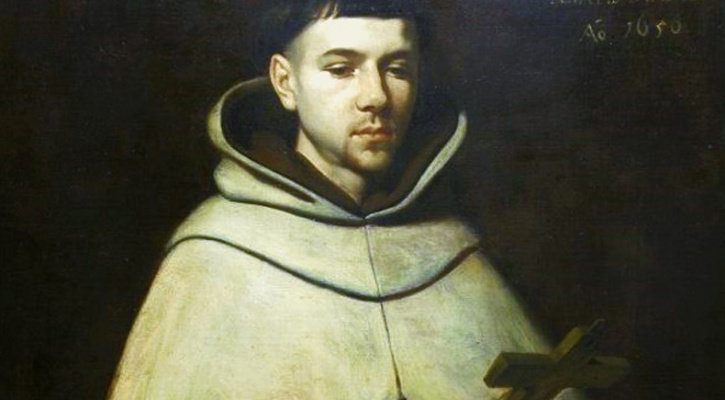St. John of the Cross
St. John of the Cross
Juan de Yepes was the Castilian son of a poor silk weaver of Fontiberos, Toledo, Spain and was born in 1542. His father was of noble birth; he had married much beneath him, and for that offense had been entirely cut off by his family. He had taken to silk weaving as a means of livelihood, but had never been able to make much of it. Soon after the birth of Juan he died, worn out with the effort to keep his wife and three children. The family was left in direst poverty; the children grew up always underfed, so that to the end of his life Juan remained dwarfed in stature.

Unable to learn a trade, he became the servant of the poor in the hospital of Medina, while still pursuing his sacred studies. In 1563, being then twenty-one, he humbly offered himself as a lay-brother to the Carmelite friars, who, however, knowing his talents, had him ordained priest. He would now have exchanged to the severe Carthusian Order, had not St. Teresa of Avila, with the instinct of a saint, persuaded him to remain and help her in the reform of his own Order.
Thus he became the first prior of the Discalced (meaning “barefoot”) Carmelites. His reform, though approved by the general, was rejected by the elder friars, who condemned the saint as a fugitive and apostate, and cast him into prison, whence he only escaped, after nine months’ suffering, at the risk of his life. Twice again, before his death, he was shamefully persecuted by his brethren, and publicly disgraced. But his complete abandonment by creatures only deepened his interior peace and devout longing for heaven.

St. John was a great contemplative and spiritual writer. He was proclaimed Doctor of the Church by Pope Pius XI on August 24, 1926. He is the patron of contemplative life, mystical theology, mystics, and Spanish poets.
Listen to St. John of the Cross’ monumental spiritual work, ‘Dark Night of the Soul’ here.
Excerpted from Little Pictorial Lives of the Saints © 1878 and Saints for Sinners by Alban Goodier, S.J.